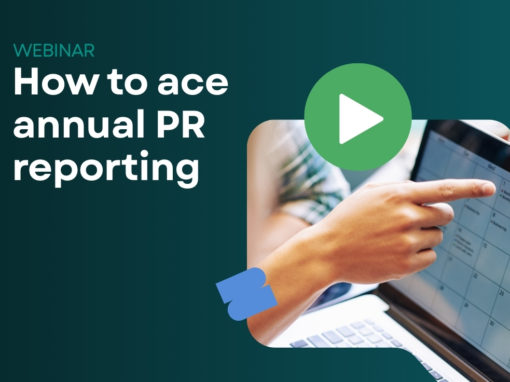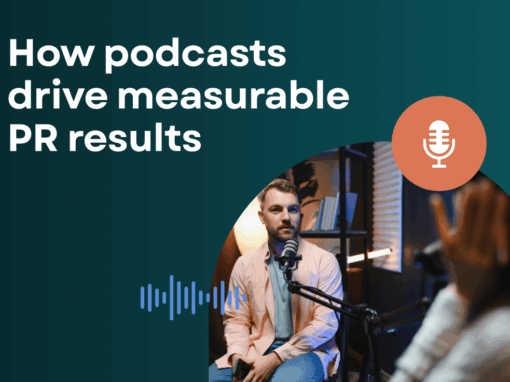Written by Releasd’s Head of Comms, Gaby Jesson.
Loneliness. It’s not a word you might associate with the life of a busy PR professional. But it’s a theme that will champion Mental Health Awareness Week this year and it’s likely a state of mind we’ve all been familiar with at some point in our working lives.
According to the Mental Health Foundation, loneliness is not about the number of friends we have or the time we spend on our own. Loneliness is something we all feel at times. It’s normal. But when it gnaws at your self worth or sense of belonging in the long term, it’s something you definitely need to address.
What research tells us
A survey by the CIPR shows that almost a quarter of PR professionals have taken time off due to stress, anxiety or depression. What’s more, 90% of our colleagues suffered with negative mental health in 2021.
Stress at work can be highly isolating. Overwhelming workload appears to be a common theme in the research findings and a lack of support in the workplace compounds the issue.
A sense of loneliness or isolation at work has numerous triggers – many of them highly relevant to our PR industry. For Mental Health Awareness Week, we’ve gathered some of the guidance, tips and remedies to help anyone who is suffering or wants to support colleagues who may be.
The PRCA and CIPR offer plenty of resources and guidance to support good mental health at work. And here are some of our top tips, collated by our own team and colleagues working in PR and social media.
- Being honest with yourself is a strength
“I’ve realised that showing I’m struggling isn’t a sign of weakness – it’s a sign of strength. Crucially it helps everyone on the team to be as open and honest as they wish about how they’re feeling”. Francis Ingham – Director-General, PRCA
Sharing how you feel with trusted colleagues, friends and family is a major step forward in dealing with any type of mental health challenge or stress at work.
Some businesses enable those confidential conversations through independent support helplines. And sometimes a social media work group is a first step in sharing common issues and remedies, taking inspiration from others in a supportive environment.
The key is to recognise that help is available from a variety of sources and you are definitely not alone!
- Tasks and Timelines
“Transparent task and time setting with achievable workload planning is vital for my own positive mental health”.“Recognising that my own action lists and timelines may not fit everyone is a big lesson I’ve learned.” Gaby Jesson – Releasd Marketing Team
Be realistic with yourself and your team or line manager about your daily or weekly action list. Easier said than done right? But this is fundamental to stop you being tied to your laptop until 10pm most nights, leading to eventual burnout.
Build a daily workload planner that includes mini refresher breaks and of course a lunch break too! Also be mindful of your own energy levels. Slot in creative or productive tasks during times of the day that best suit your levels of creativity or productivity.
Also don’t forget to include all time allocated for meetings and the administrative tasks that can be time sapping but are not always recognised in your daily KPIs! When you’ve completed your daily workload plan – there’s a great sense of achievement at the end of the day. You’ve moved from ‘to do’ to ‘ta da’!
- Curating connection
We may love our new remote working freedom but a sense of isolation increases if we don’t feel a valued part of a team. Many businesses have adopted new remote working models but to work effectively, these structures have to nurture a sense of team belonging that requires mutual trust, transparency and sharing.
Regular team check-ins are a great way to celebrate achievements and enable social engagement (beyond work related stuff). By recognising everyone in the group, these sessions are a useful way to keep individuals feeling valued, whilst enhancing a sense of team togetherness and mutual goal sharing.
Combating work isolation can also be about your workplace. Steph Reed, our social media manager, works from home and recognises the need to re-locate occasionally! So if you’re feeling the walls of home closing in,consider a local cafe or a weekly day pass at a local co-working space?
Being around other people and choosing a different view can be really beneficial to productivity – refreshing your mindset and making you feel less isolated in the process. In fact, countless studies have shown that a sense of belonging is crucial to our happiness, mental health, physical health – and even longevity.
- Balance mental with physical
A podcast conversation from @CommsHero looks at all aspects of mental health in PR. Koray from the PRCA and Rachell from the CIPR discuss the challenges and also the positive changes and self awareness since Covid.
Their conversation recaps a few basic reminders about how to tackle stress and overwhelm in PR:
- Don’t feel you need to be ‘always on’
- Balance mental work with physical activity
- Disconnect from social media
- Talk about the issues you’re facing
- Help create a work culture where mental health issues can be discussed
Fitting in physical activity and eating healthily is another tip from our team member, Steph Reed. For something a little different, why not try out the ‘LOL structured laughing and yoga sessions’ from the team at @CommsCreatives.
- You’re not alone!
Knowing you’re not alone can be both inspiring and comforting. This freelance marketing communications group – Leapers Group is free to join and their Daily Journal on Slack is incredibly honest.
Members share the daily or hourly challenges we all face in PR and social media. Nothing is off limits from the challenges of writing boring content, taking on too much work (or not having enough work when freelancing) or juggling work and family life.
Everyone experiences feelings of stress and anxiety at work. It’s normal but also vital to be able to talk and resolve too. We hope this article has helped!



